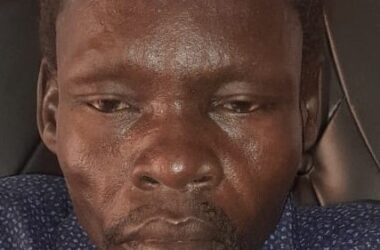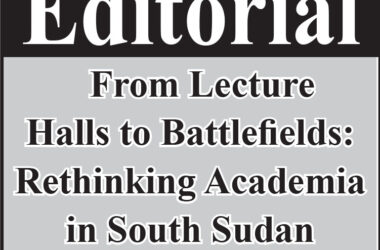By Agar Mayor Gai-Makoon
In close to seventeen months, South Sudan will go to polls. This will be our first ever elections to be held in an independent South Sudan. While the people long for a better country, their hopes are intricately tied to the elections.
Through elections, the people will own their country and make decisions that positively impact their day-to-day life. Democracy and its chief elements such as respect for human rights and fundamental freedoms of citizens will be fastened only after these elections. And unlike the current government, the elected one will be committed to fulfil their campaign promises. They will also be answerable to any other popular demands by the civil populace.
Many other expectations from these elections can be mentioned. However, there is no dearth of sceptics who, given the roadmap and rhetoric from the president and other government dignitaries, still doubt that elections will be conducted next year. This skepticism emanates from two possible sources.
National elections act was passed by the national legislative assembly and assented to by the president in 2012. This was to be a guide for free, fair and peaceful elections as expected on 9 July 2015.
The timely move indicated that the new nation was going the right way. But little did the lawmakers know that all their effort would be history one day. History of efforts that were meant for democratization and liberalization of ideas, through making laws that protect and guide the election process but instead, became stifled, died and long forgotten in its embryonic levels.
Conflict destroyed all the hopes for democracy as a foundation for the new country. It will take more drastic steps to restore the lost hope for a democratic South Sudan.
One is ensuring that there will be no more conflict before or after elections. And the fact that the two principal parties to the 2018 peace agreement and subsequent 2022 roadmap do not have equal responses and commitment to the terms agreed upon deepens the doubt for elections next year.
Secondly, the delayed constitutional making process is likely to affect the next year’s election. We cannot carryout elections without a law. The impartiality of electoral body and judicial system is achieved through laws. The earlier we produce this law, the better. And given the limited time, it would be better if the constitutional making process considers the National Elections Act, 2012 for review and use in the coming elections.
Thirdly, the government should create space for opposition parties to carry out their political activities freely. This will not only make the opposition parties more efficient and robust in their approaches to our country’s affairs, but they will abandon arms as means of fighting war for peace and development.
The competition to serve the country will only be fought through ideological approaches of each political party to our nation’s problems.
The ruling party, SPLM will also grow and become more reliable and relevant for the people. They will abandon living in the past and crave for relevance and achievements in the new era. It is only if this has happened that the people can believe that their votes can count and perhaps, they can without fear make the decision to vote for the party of their choice next year.
The second reason why the people are skeptical about the conduct of election next year has something to do with our election history. There has never been election conducted in independent South Sudan. However, rounds of postponement of elections have been witnessed by the people since independence.
The first postponement was in April 2015 to 9 July, 2018. In 2018, the parliament voted again to extend president Kiir’s term to July 202, then, came the roadmap of 4th August 2022 that was extended to a period of two more years.
All these postponements signaled different feelings for the government and citizens. For the government, it means more time to prepare for fair, credible and peaceful elections. It is still a matter of concern when time will be enough, and everything set for the choice of citizens to take control. But to the citizens, it means more suffering and poverty.
It seems that uncertainty will carry on until elections are conducted.
The writer was a contributor to Juba Monitor Newspaper



